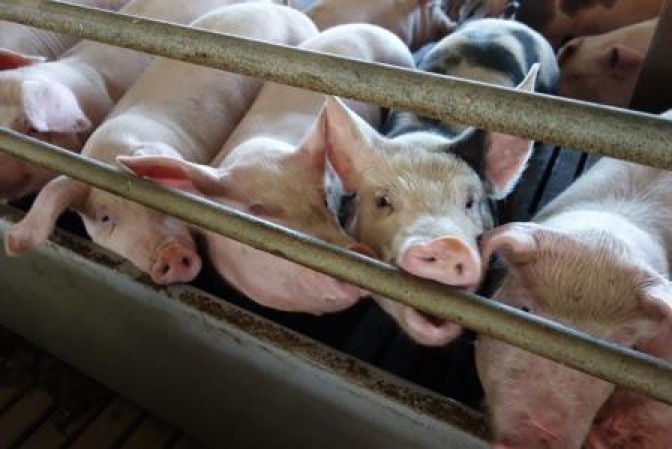The agriculture committee of the European Parliament voted in the beginning of April on reforms of EU’s common agricultural policy (CAP) in opposition to the environment committee that wanted to make EU farm subsidies conditional on minimal animal welfare standards.
Following the first vote on 2 April, a number of NGOs protested. “This shows a clear disrespect for voters, who want a food and farming system that respects animals and is good for our health and the environment,” said Olga Kikou, head of Compassion in World Farming´s EU office.
“No animal should suffer in cages, where they cannot move, turn around and lie down. We hope that the next Parliament, after EU elections, and the newly elected representatives will put an end to inhumane factory farms propped up by EU taxpayer’s hard-earned euros.”
Asked by The Brussels Times about the position of the European Commission, a source in the Commission welcomed the vote by the agriculture committee. “The vote represents another important step towards the modernisation and simplification of the CAP and will benefit millions of European farmers.”
The Commission declined to comment on the animal welfare issue because of the many amendments to the new regulation. “The legislative process is ongoing and it is up to the co-legislators to discuss these matters.”
The first vote by the agriculture committee on the CAP reform focussed on new EU rules after 2020 for common market organisation in agricultural products. The second vote dealt with rules for direct payments, rural development and a new delivery model based on strategic plans. In a third vote, the committee voted on a regulation on financing, management and monitoring of the CAP rules.
Among others, voluntary eco-schemes will be included in the national strategy plans and extended to protect animal welfare. The agriculture committee wants to dedicate at least 30% of the rural development budget to all types of environmental and climate-related measures and not less than 20% of the direct payments budget to eco-schemes.
“I tried to strike a balance between supporting farmers and the protecting the environment. Green architecture has been strengthened, putting a stronger accent on an incentive-based approach. A fairer distribution of the payments has been proposed to support farming SMEs,” said Spanish rapporteur Esther Herranz Garcia (EPP).
In February, the environment committee voted that EU funds should not go to factory farming, where animals are raised industrially, and backed the application of higher animal welfare criteria for EU funds based on definitions of stocking density and animal feeding operations.
Swedish MEP Jytte Guteland (S&D), member of the environment committee, told The Brussels Times that she deplored that the agriculture committee did not take the opportunity to change agricultural rules to better protect animals.
“The environment committee insisted on improving the rules for animal welfare in the CAP framework. We want to reduce the incentive for intensive animal rearing by coupled EU payments and introduce a limit for concentrated animal feed operations.”
“What is missing in the proposal of the agriculture committee is a limitation of EU support to producers that systematically violate animal welfare rules,” she says and mentions as an example pig tail docking that is forbidden in EU.
“It’s obvious that the starting point for the agriculture committee was to benefit large producers in member states and protect their production at the expense of among others animal welfare. Our committee, in contrast to the agriculture committee, has prioritised animal welfare together with ambitious climate and environmental objectives.”
The text approved by agriculture committee MEPs has to be scrutinised by the Parliament as a whole. This can happen only after the 23-26 May European elections. Meetings between the co-legislators (so-called trilogues) are expected to start during the next Presidency held by Finland.
The Brussels Times

